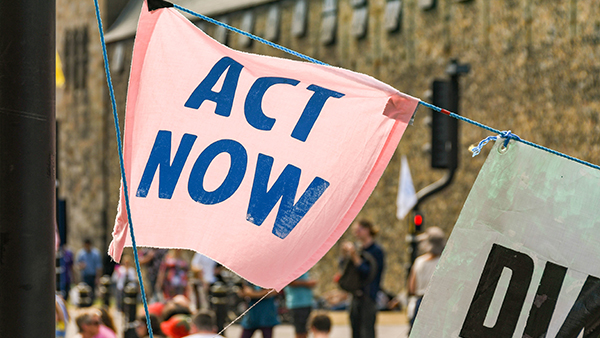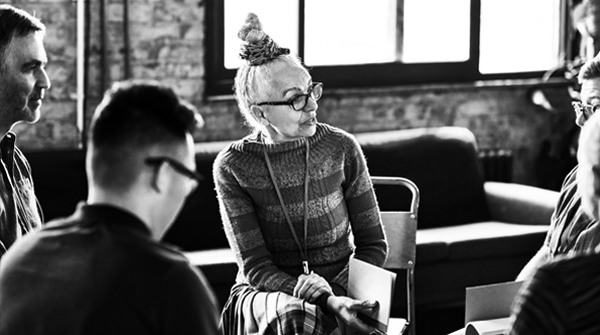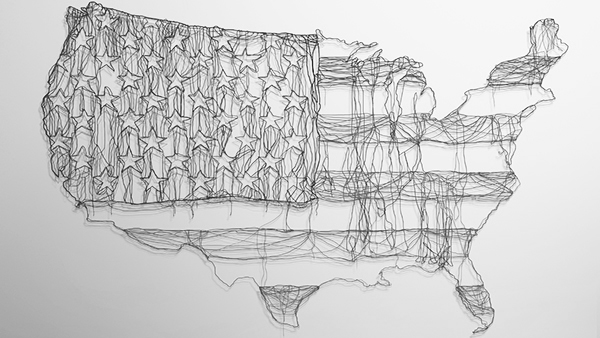People like me don’t seem to understand how much worse things may get.
After the EU referendum there were three main reactions among the middle class, metropolitan classes, almost all of whom had voted ‘remain’: First, shock and dismay; how could so many people ignore advice about what was in their interests? Second, rage and indignation; ostensibly directed at the successful tactics of the Leave campaign but with the more insidious subtext was that those who had supported that campaign were bigots, fools or both. Third, self-righteous piety; we who understand how things work and how they must be managed, now have to explain to the public the mess they have created and clear it up as best we can.
Meanwhile, in a parallel universe, Brexit voters are feeling equally righteous and increasingly impatient. In conversation last week with a Leave campaigner I innocently said something like ‘what people don’t realise about leaving…...’. ‘What do you mean ‘don’t realise’, she fired back. ‘Don’t you get it? Leave voters knew all the consequences. Why, at one meeting during the campaign a care worker with no GCSEs told me how she and her friend had been Googling tariff policy’.
As Brexit campaigners move to the next stage of their crusade to take back control they have developed their own argument: First, Leave voters knew exactly what they were doing and were quite aware of the difficult consequences; second, they and many disillusioned Remain voters have noticed how the economy hasn’t yet tanked and concluded that the Establishment once again lied to them in promising post-Brexit disaster. Third, when these same discredited experts say the bad news is yet to come, not only are they sticking to their scare tactics but they are revealing how they would rather Britain suffered than have to admit to be being wrong. Fourth, there is nothing standing in the way of the UK successfully going it alone tomorrow (half the world is queuing up to do trade deals with us) but a thinly disguised Establishment conspiracy to somehow wriggle away from Brexit.
When I tell people like me about the hardening views of most other folk they are incredulous. When I go on to say that, as a former political strategist, I believe the latter case is massively more powerful than the former they shake their heads and wander off to find someone more amenable. In vain do I point out that what is so clever about the Leavers’ world view is that to deny any of it means immediately being branded an out of touch elitist; as someone who has failed to adjust not only to the vote, but to the more brutal fact that Britain, or least England, no longer belongs to the likes of us.
In the days after the referendum the noise was all from indignant Remainers predicting that Leavers would soon be recanting in their masses and begging the old guard to get them out of the mess. Not only was this wrong but the momentum is growing steadily behind ‘leave now’. I predict that the liveliest fringe meetings at Conservative annual conference next month will have platforms demanding a fast and fixed timetable for withdrawal and denouncing anyone who disagrees as an enemy of the people. Already there are signs of Cabinet ministers briefing that they are in the ‘get on with it’ camp. The divide in the Tory party is moving from ‘remain’ or ‘leave’ to ‘out carefully and slowly’ versus ‘out now and bugger the consequences’.
These are dark and dangerous times for policy pragmatists and political moderates. Do we have anyone but ourselves to blame? Look at the Labour Party. The decision to challenge Jeremy Corbyn is starting to look profoundly ill-advised. Instead of being patient and waiting for his position to become untenable (which was, by the way, the implicit strategy of the trade unions), those who forced the election could provide Corbyn with a huge new surge of energy and legitimacy. You can already hear the response that will be made from now until 2020 by anyone who questions his leadership ‘how many times does he have to win before you respect Party democracy?’.
‘Why are the moderate Labour MPs finding it so hard to look more than one step ahead?’ I asked an insider. ‘How long have you got?’ he replied. ‘They lack leadership, whenever anything happens they start a conversation that goes round in circles before reaching an arbitrary conclusion, and anyway they are divided between the liberal progressive wing who focus on beating the Conservatives in the middle ground and many from northern working class constituencies who want a tough line on immigration to fend off UKIP’.
If you are reading this post on vacation in Europe, perhaps as you sip your chilled wine and gaze out across the Tuscan hills, my gloominess might strike a false note. Maybe it’s best then not to think too hard about the fact that you are holidaying on a continent managing a complex political civil war which could at any time break out into large scale and violent strife. Economic frailty and high unemployment, a continuing tide of desperate refugees, right and left wing populism, the random, terrifying, demoralising tactics of ISIS; all dry tinder waiting for a match.
It would be irresponsible to write a post like this without some idea of what should be done. I wish I could offer something concrete but it is hard enough finding a way to talk usefully about the problem. Instead I can only urge a greater urgency and new mind-set from those who think that, whatever its many faults and variations, it is still better to try to reform the democratic social market than to destroy it. What does this involve? It’s about a balance of different elements; none are enough on their own, but somehow we need to try to create a cycle of hope and unity to replace that of despair and division. It may sound like I am preaching to those in power, or seeking it, but, really, we need greater leadership everywhere.
Realism and humility: The establishment is in retreat for good reasons, we have stop pretending we know better. Those who feel they have been failed by the system must be heard and be seen to be heard. The angry and disillusioned must be trusted to understand and engage with the hard choices leaders face.
Responsibility: Reformists (as distinct from revolutionaries) must emphasise the things on which they agree. We must focus more on the health of the public realm than our personal or sectional interests. Those who seek to be honest brokers at a time of division must, at the very least, be honest.
Courage and clarity: People recognise and respect authenticity and bravery when they see it. True leaders – at whatever level - say what needs to be said however hard it is to say it. They put their neck on the line. They develop a strategic course of action and stick to it when things get tough.
Innovation and reasons to hope: Progressives (of the left, right and centre) must believe in progress. But warm words aren’t enough. We need to find clever, concrete, creative ways of bringing a better more humane future into the here and now.
It’s easy for me to say all this. Although I regret what I failed to do when I was closer, I am now on the far edges of power. At its best the RSA stands for some of what is needed – progressive, independent, inventive, willing to collaborate with anyone from Cabinet ministers to campaigning community groups. The way we try to work with our Fellowship stands for an idea of change done with people not to them. But as an organisation we could do much more, and sometimes I think we lack the sense of urgency these dark days demand.
August is a hard time to find readers. Maybe I’m writing this post to myself.
Related articles
-
The public are ready to go further and faster on net zero
Anthony Painter
The public are ahead of policy-makers and, indeed, most of the business world. COP26 is an enormous opportunity to catch up. Global leaders should take it.
-
Can progressives ever stop the in-fighting?
Matthew Taylor
Biden's victory has caused the left and moderates to fracture again.
-
Can President Biden bring America together again?
Anthony Painter
There is a long road ahead for the new president.




Join the discussion
Comments
Please login to post a comment or reply
Don't have an account? Click here to register.
This has been in a line of reading, it's 2:44 am and I'm on the far edges of inspiration, innovation and craft, for and with people. It's time to return from the creative space if ideas, to teaching, training and tutoring the sharing of skills. A small, but significant, start here in this 'state of emergency'. Bjork sang the words.
Thanks Matthew
Real quick, reflecting on Sarah's point. Very hard to disagree, so I won't. But I can't help but compare this to other aspects of life, and what we would do in those situations.
"But feeling embarrassed that you’re on the side of the elites and don’t want to make matters worse by challenging the view of the people is the wrong response."
"I am not moving to ‘acceptance’ without a fight."
Might be best to look at this like the upset results that can - and do - happen in most sports. Sometimes, an athlete may do everything in his power to prepare properly. Train hard, strategise and implement his game plan to perform well on the field, but simply get beaten by an opponent in a shock result. It's freaky, but it happens. Years ago, nobody thought Ivanisevic would win the Wimbledon title, nobody thought Douglas would beat the superior Mike Tyson. But these things happen. (Doesn't mean that we think Douglas was better than Tyson, and doesn't mean Tyson loses his place in the history books as one of the greatest of all time.)
What you don't do afterwards is then argue with the referee, contest the decision of judges, accuse opponents of steroid use, blame your own teammates etc. Even if some of those things are valid grievances. In fact, especially if those things are valid. You humbly recognise that you lost, politely congratulate the winners, shake hands and walk away. To do otherwise... lacks dignity.
Upset Remainers might feel better if they just treat this like the other sports out there. Just shake hands, walk away, learn lessons from the defeat, go away and work harder for next time.
Oliver
Imagine the events that have been happening in the UK overthe last 6 months were happening in a country which we judged to lack trulydemocratic processes. If we werereading reports that the opposition party had been infiltrated by extreme leftparties who have revolution on their minds we wouldn’t feel comfortable with theleader of that party arguing he has a ‘democratic mandate’. If we had watched a referendum unfurl wherefalse claims, lies and buffoonery replaced information and debate we wouldn’tbe using the phrase ‘the public have spoken’. If we’d seen a leader emerge in the party in power without any form ofgenuine election we would not be saying ‘efficiency and practically at a timeof great change’.
Yes I believe in democracy. But not the kind of democracy that we’re experiencing right now. And so to beat ourselves up with a view thatwe cannot question a democratic vote and therefore must stand by and watch oureconomy, reputation and powerbase destroyed is the wrong response.
If a room full of 6 year olds were asked to vote on whetherthey wanted broccoli or sticky buns for a month, lets assume they’d go with thebuns. But also lets assume that therewould be sufficient grown ups in the room to help them understand theconsequences of that choice. And if theystill insisted on choosing the sticky buns those same grown ups would be there to clean upthe mess, lessons would have been learnt and the experiment would be over.
This is class war. Particularly when looking at the EU debate, there’s a ton of academicresearch that shows us that those with a European mindset are better educated,wealthier, more travelled, more liberal and more outward looking. Those who don’t have a European mindset arevery locally focused, and deeply suspicious of those who have who they see aselitist.
But feeling embarrassed that you’re on the side of theelites and don’t want to make matters worse by challenging the view of thepeople is the wrong response. Fixing theunderlying structural problems that has created the justifiably pissed-offunderclass we have in this country is what needs to happen, and that’s notgoing to be possible whilst we sit on our hands trying to figure out theimpossible art of leaving Europe. Themany millions that will be spent attempting exit could be more usefully spenton the education, cultural, infrastructure and wealth creation initiatives in the regionsthat would go some way to everyone having a more open hearted outlook.
So stay angry, not downhearted. Re-visit the democratic process. I am not moving to ‘acceptance’ without afight.
I agree with a lot of what you're saying Sarah, but would take this opportunity to mention that I intensely dislike the word 'underclass' when applied in this sort of context. It seems to express some sense of 'other' - they are people and our neighbours. I don't suppose the people deemed to be the underclass were the people who created the word to describe themselves.
You are right - it was a poor choice of word. I was trying to make the point that if you look at the brexit vote through the lens of social identity theory which is all about being in identified groups of 'same' or 'other', there's a definite 'them' and 'us' issue at the core of the vote that is broadly shaped by whether you are in the 'haves' or the 'have nots' grouping.
This is timely and pressing. Normally, we look to the political parties to regenerate, deal with some of this, redesign our public space, bring constitutional issues to some consensual resolution. But it seems they are incapable of reacting, cast in the ideological and stakeholder frameworks of their past. The RSA could be a forum, with such organisations as the Federal Trust, pushing for change, but how to make it politically effective, that is the question.
The section under realism & humility, about people who feel betrayed etc must be heard. And that the leave side has a more powerful argument strategically. Is this just important to acknowledge, or do you actually believe it? Like, beyond grasping the reasons for their ideas and respecting their thinking in civil terms, do you actually sign up to any of their grievances?